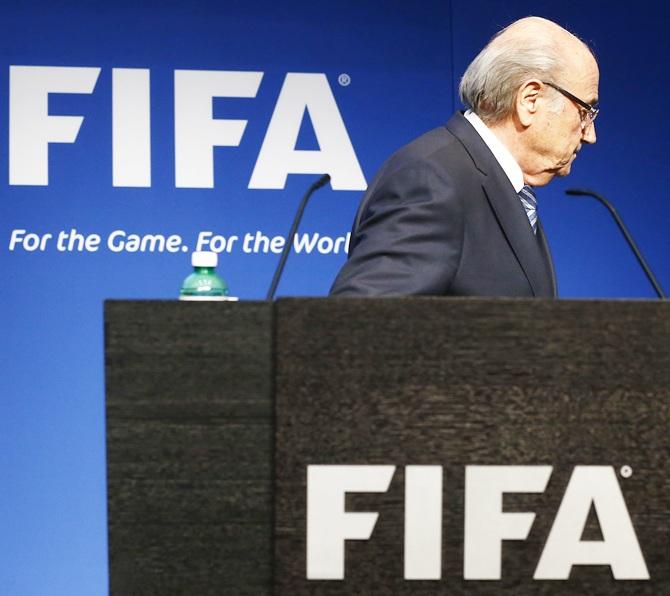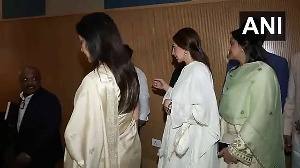
The football representatives of many nations, particularly from Africa and Asia, have shown a lot of loyalty to outgoing FIFA President Sepp Blatter over his 17-year reign, despite long-running allegations of widespread corruption in football’s main governing body.
FC Goa's coach Zico launches FIFA presidency bid
Many of the football associations in those countries have been particularly grateful that Blatter’s FIFA handed out substantial grants for various facilities, equipment and training, including football fields and youth development programs.
Under Blatter, FIFA has handed its development money out strategically. Members of FIFA with only tiny populations have often received as much in grant money as those with massive populations, a Reuters analysis of FIFA data shows.
For example, a FIFA development programme created by Blatter in 1999 directs the most funds per capita to small countries. The so-called Goal Programme has focussed the largest per-capita portions of development money on members with populations under 200,000 — most of them island nations.
Topping the list is Montserrat in the Caribbean, which has received $1.45 million (£0.93 million) in Goal money since 1999, or about $278 for each of its 5,215 residents. The Cook Islands in the Pacific received $2.37 million, or $234 per person, followed by Anguilla, also in the Caribbean, with $1.10 million, or $69 per resident.
It “is in essence a solidarity programme that makes a modest but nevertheless important contribution to reducing inequality,” Blatter wrote in a 2013 brochure. “The Goal Programme provides the member associations – especially the less privileged ones – with the necessary resources (human, technical and financial) to implement large-scale soccer activities,” he added.
The programme funds projects in 206 of FIFA’s 209 member organizations.
Votes and Benefits

Reuters analysed Goal Programme budgets and spending since 1999 using data from the organisation's official website FIFA.com, though in a few places project data were missing. Some projects in Guatemala, St. Kitts and Nevis and Yemen, for example, were not publicly accounted for.
A FIFA spokesman said it intended to keep development information updated but confirmed that some projects were missing from the site. He said project financials were normally updated twice per month.
FIFA reelected Blatter for a fifth presidential term on May 29 only days after US prosecutors indicted nine current or former FIFA officials and five corporate executives on corruption charges. However, on June 2, he announced his resignation, saying he no longer felt he had a mandate from the entire world of football.
The 209 member nations each have one vote in the election for the president, regardless of population or soccer-playing prowess. Critics say that this means that grant money can be used to lock in support in votes like the one Blatter just won because in smaller nations each dollar granted can exert more influence.
Supporters of Blatter and the current system say that handing out money on an equal basis to all countries means that the game’s development spending benefits many places that lack the ability to fund projects themselves. It doesn’t favour nations in Europe who are already football powerhouses and have plenty of their own resources to spend on fields and other facilities.
When asked how FIFA ensured that it was not allocating funds disproportionately, the spokesman said it had strengthened its compliance mechanisms over past years. “We can today say that FIFA’s development programs fulfil strict international standards,” he said.
The Goal Programme’s methods can lead to some radically unequal outcomes. Mexico, for example, has received only $1.3 million from it, less than the Cayman Islands, Seychelles, or Cape Verde. Top-ranked FIFA nations like Belgium, Portugal, Spain and Italy have received no funding.
Nations with substantial populations and little football infrastructure have seen development money on a par with tiny islands. Myanmar and Guam both received approximately $2.5 million from FIFA between 1999 and 2014. In Guam, that’s $16 per person. In Myanmar, it’s less than five cents per person.
FIFA has also been less than generous with India and China, given the size of their populations and relatively limited football infrastructure. They’ve received $2 million and $1.8 million, respectively, since the Goal Programme began, or a fraction of a cent per person.












